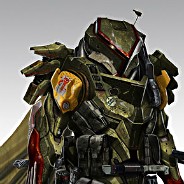Ответы на вопрос:
Twelve million children attend about 40.000 schools in Britain. Education in Great Britain is compulsory and free for all children between the ages of 5 and 16. There are many children who attend a nursery school from the age of 3, but it is not compulsory. In nursery schools they learn some elementary things such as numbers, colours, and letters. Apart from that, babies play, have lunch and sleep there. Whatever they do, there is always someone keeping an eye on them.
Compulsory education begins at the age of 5 when children go to primary school. Primary education lasts for 6 years. It is divided into two periods: infant schools (pupils from 5 to 7 years old) and junior schools (pupils from 7 to 11 years old). In infant schools children don't have real classes. They mostly play and learn through playing. It is the time when children just get acquainted with the classroom, the blackboard, desks and the teacher. But when pupils are 7, real studying begins. They don't already play so much as they did it in infant school. Now they have real classes, when they sit at desks, read, write and answer the teacher's questions.
Compulsory secondary education begins when children are 11 or 12 and lasts for 5 years. Secondary school is traditionally divided into 5 forms: a form to each year. Children study English, Mathematics, Science, History, Art, Geography, Music, a Foreign language and have lessons of Physical training. Religious education is also provided. English, Mathematics and Science are called "core" subjects. At the age of 7,11 and 14 pupils take examinations in the core subjects.
There are 3 types of state secondary schools in Great Britain. They are:
1) comprehensive schools, which take pupils of all abilities without exams. In such schools pupils are often put into certain sets or groups, which are formed according to their abilities for technical or humanitarian subjects. Almost all senior pupils (around 90 per cent) go there;
2) grammar schools, which give secondary education of a very high standard. Entrance is based on the test of ability, usually at 11. Grammar schools are single sexed schools;
3) modern schools, which don't prepare pupils for universities. Education in such schools gives good prospects for practical jobs.
After five years of secondary education, at the age of 16, pupils take the General Certificate of Secondary Education (GCSE) examination. When they are in the third or in the forth form, they begin to choose their exam subjects and prepare for them.
After finishing the fifth form pupils can make their choice: they may either leave school and go to a Further Education College or continue their education in the sixth form. Those who stay at school after GCSE, study for 2 more years for "A' (Advanced) Level Exams in two or three subjects which is necessary to get a place at one of British universities.
There are also about 500 private schools in Great Britain. Most of these schools are boarding ones, where children live as well as study. Education in such schools is very expensive, that's why only 5 per cent of schoolchildren attend them. Private schools are also called preparatory (for children up to 13 years old) and public schools (for pupils from 13 to 18 years old). Any pupil can enter the best university of the country after leaving this school. The most famous British public schools are Eton, Harrow and Winchester.
After leaving secondary school young people can apply to a university, a polytechnic or a college of further education.
There are 126 universities in Britain. They are divided into 5 types:
The Old ones, which were founded before the 19th century, such as Oxford and Cambridge;
The Red Brick, which were founded in the 19th or 20th century;
The Plate Glass, which were founded in 1960s;
The Open University It is the only university offering extramural education. Students learn subjects at home and then post ready exercises off to their tutors for marking;
The New ones. They are former polytechnic academies and colleges.
The best universities, in view of "The Times" and "The Guardian", are The University of Oxford, The University of Cambridge, London School of Economics, London Imperial College, London University College.
Universities usually select students basing on their A-level results and an interview.
After three years of study a university graduate get the Degree of a Bachelor of Arts, Science or Engineering. Many students then continue their studies for a Master's Degree and then a Doctor's Degree (PhD).
Лайк басып, беріп, лучший ответь басшы
School education is an important element of education in modern society, forming the child's basic knowledge and skills. Since from September 1, 2013, pre-school education was included by the Federal Law "On Education in the Russian Federation" into the general education structure, the concepts of "school education" and "general education" in Russia ceased to be synonymous from a legal point of view. Complete secondary education in the school lasts 11 classes. Incomplete secondary education lasts 9 classes. Schools in Russia give general education to students. Schools that give only a standard course of general education are simply referred to as "secondary schools," and schools that provide in-depth knowledge of individual disciplines, or introduce their own disciplines in addition to compulsory courses, can be called otherwise ("school with in-depth study of subjects," "lyceum "," Gymnasium "). Education in public secondary schools (including schools with in-depth study of subjects) is officially free. In the last decades of the existence of the USSR, schools also provided students with textbooks for free, now the tutorials are being purchased. Until 1986, the school year was 10 years (primary school - 3 years, basic - 5 years, senior - 2). Then, as an experiment, a 4-year elementary school course was introduced, but the students were given the opportunity to learn by the 3-year (10-year) or 4-year (11-year) program. At the same time, students who studied under the 3-year program, when they moved to the main stage, "jumped over the number" - from grade 3 switched to the 5th class, and simultaneously, in 1989 such a "jump" was made in all classes. Currently, 3-year primary education is completely canceled: all newly enrolled children are enrolled in an 11-year program. The standard terms for the development of general education programs in general education levels, adopted by the Decree of the Government of the Russian Federation of March 23, 2001 No. 224: I level (primary general education) - 4 years; II level (basic general education) - 5 years; III level (secondary (complete) general education) - 2 years. Primary and basic general education at school in accordance with the Constitution of the Russian Federation is mandatory for all. Responsibility is placed on parents or legal representatives who, taking into account the opinion of children, have the right to choose an educational institution and the form of teaching children before they receive a basic general education. The acquisition of education is limited by the student's academic time, according to the Federal State Educational Standard (GEF). The school course is divided into three stages, officially named: "primary school", "primary school" and "senior classes".
Хаха, извини что так много
Відповідь:
1)What is it?
2)matter
3)sorry
4)mean
5)relief
6)happen
Пояснення:
Реши свою проблему, спроси otvet5GPT
-
Быстро
Мгновенный ответ на твой вопрос -
Точно
Бот обладает знаниями во всех сферах -
Бесплатно
Задай вопрос и получи ответ бесплатно

Популярно: Английский язык
-
СОР Task 1 Read the dialogue and Choose the right answer A, B, C or D. Travel...
 мират329.12.2020 03:33
мират329.12.2020 03:33 -
ОЧЕНЬ ОЧЕНЬ Нужно2,4,5 задание...
 memasov15.01.2020 01:06
memasov15.01.2020 01:06 -
Нужно 1. how eggs are there in the fridge, paul? 2. we don t need orange juice....
 Gagatyngerz30.04.2023 18:56
Gagatyngerz30.04.2023 18:56 -
Переведите на язык. (не переводчик! ) 1. не беспокойтесь. никто не узнает об...
 dolgorma127.10.2022 11:00
dolgorma127.10.2022 11:00 -
Мне нужно оформить титульный лист для проекта на тему the place we live in...
 isaevas153Sasha10.03.2022 14:30
isaevas153Sasha10.03.2022 14:30 -
Даны сторона и два угла треугольника abc. найдите его третий угол и остальные...
 Айка111111678919.05.2022 07:39
Айка111111678919.05.2022 07:39 -
Write about things you can and can t do at home and school.use the ideas below...
 камаз911.03.2020 17:03
камаз911.03.2020 17:03 -
Сграмматикой. как правильно? 1.the frog lives in the pond. или the frog lives...
 555Фрайлисия55509.06.2023 02:07
555Фрайлисия55509.06.2023 02:07 -
Нужно по этому предложению составить 3 вопроса вот предложение: they have already...
 TANIAMIRNAI28.02.2020 18:30
TANIAMIRNAI28.02.2020 18:30 -
Fill in the blank with the correct word. use is, are + some (1) fill in the...
 Асия2222205.02.2023 01:38
Асия2222205.02.2023 01:38

Есть вопросы?
-
Как otvet5GPT работает?
otvet5GPT использует большую языковую модель вместе с базой данных GPT для обеспечения высококачественных образовательных результатов. otvet5GPT действует как доступный академический ресурс вне класса. -
Сколько это стоит?
Проект находиться на стадии тестирования и все услуги бесплатны. -
Могу ли я использовать otvet5GPT в школе?
Конечно! Нейросеть может помочь вам делать конспекты лекций, придумывать идеи в классе и многое другое! -
В чем отличия от ChatGPT?
otvet5GPT черпает академические источники из собственной базы данных и предназначен специально для студентов. otvet5GPT также адаптируется к вашему стилю письма, предоставляя ряд образовательных инструментов, предназначенных для улучшения обучения.
